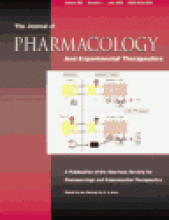Abstract
The objective of the present study was to elucidate the role of nicotine in impairment of spontaneous alternation behavior of juvenile stroke-prone spontaneously hypertensive rats (SHRSP), an animal model of attention deficit hyperactivity disorder (ADHD). Spontaneous alternation behavior assessed by a Y-maze task was significantly lower, and total arm entries were significantly higher in SHRSP than in genetic control Wistar-Kyoto rats. Nicotine (0.1–1 mg/kg, s.c.) dose dependently improved the spontaneous alternation deficit without affecting total arm entries in SHRSP. Nicotine-induced (1 mg/kg, s.c.) improvement was significantly abolished by the centrally acting nicotinic acetylcholine receptor (nAChR) antagonist mecamylamine (1 mg/kg, i.p.), but not by peripherally acting hexamethonium (5 mg/kg, i.p.), suggesting that nicotine-induced improvement is mediated via central nAChR. The α4β2 nAChR antagonist dihydro-β-erythroidine (3–10 mg/kg, i.p.) dose dependently counteracted nicotine-induced improvement of spontaneous alternation in SHRSP, whereas the α7 nAChR antagonist methyllycaconitine (3–10 mg/kg, i.p.) did not. In addition, the α4β2 nAChR agonist RJR-2403 (N-methyl-4-(3-pyridinyl)-3-butene-1-amine; 1–10 mg/kg, s.c.) dose dependently and significantly improved the spontaneous alternation deficit. These findings revealed that nicotine improved spontaneous alternation behavior in SHRSP via the activation of α4β2, but not α7, nAChR. Thus, the α4β2 nAChR mechanism might be responsible for the spontaneous alternation deficit in juvenile SHRSP, an animal model of ADHD. This evidence indicates the possibility that selective α4β2 nAChR agonists might be useful for treating attentional dysfunction in ADHD.
Footnotes
- Abbreviations:
- nAChR
- nicotinic acetylcholine receptor
- ADHD
- attention deficit hyperactivity disorder
- SHR
- spontaneously hypertensive rats
- SHRSP
- stroke-prone SHR
- WKY
- Wistar-Kyoto rats
- RJR-2403
- N-methyl-4-(3-pyridinyl)-3-butene-1-amine
- MEC
- mecamylamine
- HEX
- hexamethonium
- MLA
- methyllycaconitine
- DHβE
- dihydro-β-erythroidine
- DA
- dopamine
- ACh
- acetylcholine
- GTS-21
- 3-(2,4-dimethoxybenzylidene)-anabaseine
- Received February 6, 2002.
- Accepted March 7, 2002.
- The American Society for Pharmacology and Experimental Therapeutics
JPET articles become freely available 12 months after publication, and remain freely available for 5 years.Non-open access articles that fall outside this five year window are available only to institutional subscribers and current ASPET members, or through the article purchase feature at the bottom of the page.
|






